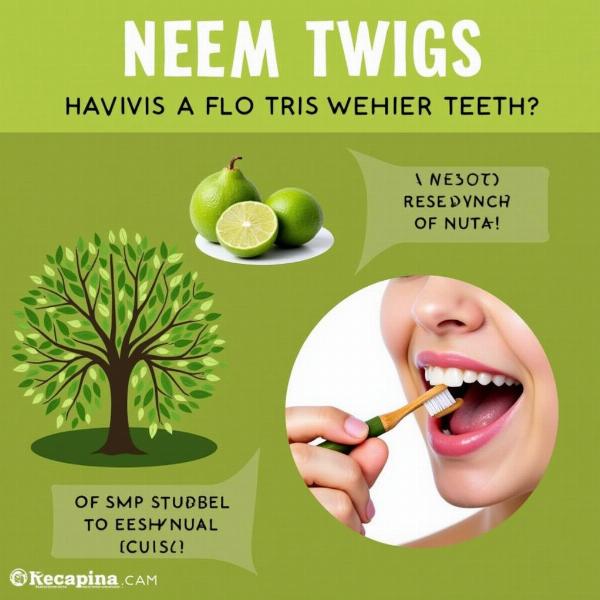Understanding the phrase “I brush my teeth” and its Hindi equivalent is crucial for effective communication, especially in contexts related to health, hygiene, and daily routines. This seemingly simple phrase has cultural nuances that can enrich your understanding of Indian traditions. This article explores the various ways to express this action in Hindi, along with cultural insights and related vocabulary.
Different Ways to Say “I Brush My Teeth” in Hindi
Several Hindi phrases convey the meaning of “I brush my teeth,” each with subtle differences in formality and regional usage. The most common and widely understood translation is:
- मैं अपने दाँत ब्रश करता/करती हूँ (Main apne daant brush karta/karti hoon): This translates literally to “I brush my own teeth.” The verb ending changes based on gender: karta for masculine and karti for feminine. This is the most straightforward and generally accepted translation across various Hindi dialects.
Other variations include:
- मैं दाँतून करता/करती हूँ (Main daantoon karta/karti hoon): This phrase uses the traditional word “daantoon” which refers to the act of cleaning teeth, often with a twig. While less common in urban settings, it still holds relevance in rural areas and reflects traditional practices.
- मैं मंजन करता/करती हूँ (Main manjan karta/karti hoon): This phrase uses the word “manjan,” which refers to toothpaste or tooth powder. This phrase implies the use of a cleaning agent while brushing.
The Cultural Significance of Oral Hygiene in India
Oral hygiene has deep roots in Indian culture, dating back centuries. Traditionally, twigs from neem trees (Azadirachta indica), known for their antiseptic properties, were used as natural toothbrushes. This practice, known as datun, is still prevalent in some parts of India and highlights the emphasis on natural remedies.  Brushing teeth with a neem twig
Brushing teeth with a neem twig
The transition to modern toothbrushes and toothpaste has been gradual, but the importance of oral hygiene remains ingrained. In many Indian households, brushing is the first activity of the morning, often before prayers or other rituals.
Related Vocabulary: Expanding Your Hindi Dental Lexicon
Learning related vocabulary enhances your understanding and communication about dental hygiene in Hindi. Here are some useful terms:
- दाँत (Daant): Teeth
- मंजन (Manjan): Toothpaste/Toothpowder
- ब्रश (Brush): Toothbrush
- दंत चिकित्सक (Dant Chikitsak): Dentist
- मुँह (Munh): Mouth
Why Knowing “I Brush My Teeth” in Hindi is Important
Whether you’re traveling to India, interacting with Hindi speakers, or simply expanding your language skills, knowing how to say “I brush my teeth” can be incredibly useful. It allows you to:
- Communicate effectively about your daily routine: This is especially important for travelers and those living in India.
- Discuss health and hygiene practices: Being able to discuss oral hygiene can be beneficial in various contexts.
- Connect with Hindi speakers on a personal level: Showing an effort to learn and use their language can foster deeper connections.
I Brush My Teeth Every Morning: Building Simple Sentences
Now that you know the basics, let’s build simple sentences:
- मैं रोज़ सुबह अपने दाँत ब्रश करता/करती हूँ (Main roz subah apne daant brush karta/karti hoon): I brush my teeth every morning.
How Often Should You Brush Your Teeth?
Dental professionals recommend brushing your teeth twice a day, for at least two minutes each time. This helps remove plaque and food particles, preventing cavities and gum disease. Maintaining good oral hygiene is essential for overall health and well-being.
“Regular brushing, coupled with flossing and dental check-ups, is vital for a healthy smile,” says Dr. Anjali Sharma, a renowned dentist in Mumbai. “It’s a simple habit with significant long-term benefits.”
Incorporating Brushing into Your Daily Routine
Making brushing a regular habit is crucial. Establishing a consistent routine, morning and night, ensures optimal oral hygiene. dentifrices meaning in hindi
“Starting the day with a clean mouth sets a positive tone for overall health,” adds Dr. Sharma. “It’s a small investment of time that yields significant returns.” permanent teeth meaning in hindi
Conclusion
Knowing how to say “I brush my teeth” in Hindi, along with understanding the cultural context and related vocabulary, provides valuable insights into Indian traditions and facilitates effective communication. Whether you’re learning Hindi for personal enrichment or practical purposes, incorporating these phrases and vocabulary into your conversations will enhance your understanding and connection with Hindi speakers. canines teeth meaning in hindi
FAQ
- What is the most common way to say “I brush my teeth” in Hindi? मैं अपने दाँत ब्रश करता/करती हूँ (Main apne daant brush karta/karti hoon) is the most common and widely understood translation.
- What is the traditional method of cleaning teeth in India? Traditionally, twigs from neem trees (datun) were used as natural toothbrushes.
- What does “manjan” mean in Hindi? “Manjan” refers to toothpaste or tooth powder.
- Why is oral hygiene important? Oral hygiene is essential for preventing cavities, gum disease, and maintaining overall health.
- How often should I brush my teeth? Dental professionals recommend brushing twice a day, for at least two minutes each time.
Meaning-Hindi.in is your trusted partner for accurate and culturally sensitive Hindi translation services. We specialize in various areas, including business, legal, technical, website localization, and academic document translation. Our team of expert linguists ensures high-quality translations that bridge the language gap and foster effective communication. For all your Hindi translation needs, contact us at [email protected] or call us at +91 11-4502-7584. Meaning-Hindi.in is dedicated to providing exceptional language solutions tailored to your specific requirements.